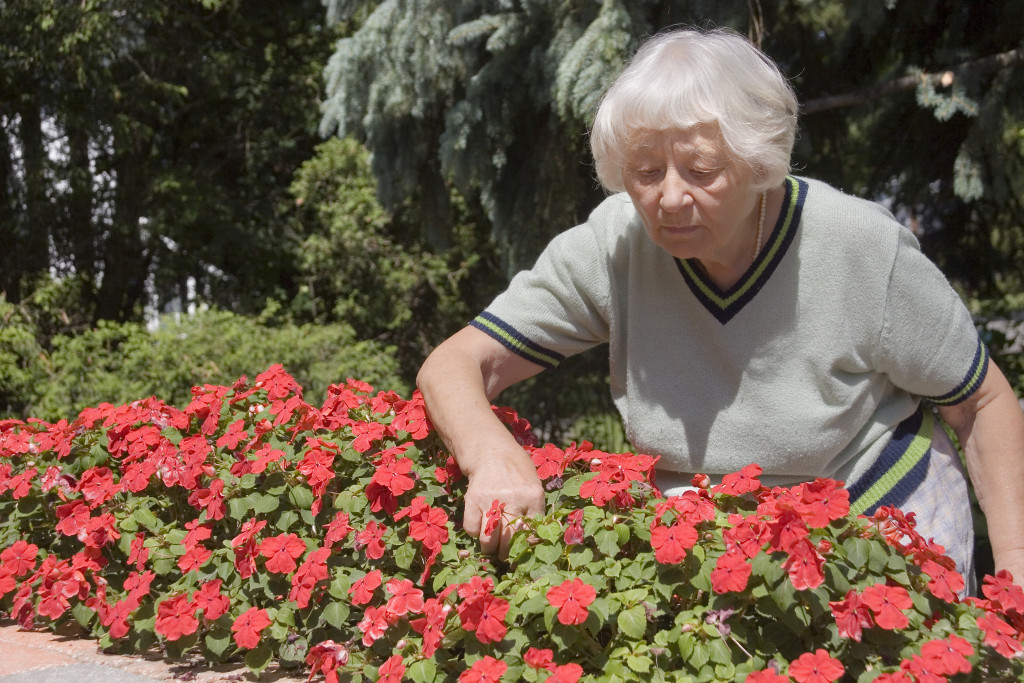As people get older, they can often experience a decline in their cognitive function. This can manifest as problems with memory, thinking speed, and executive function (the ability to plan and execute tasks).
One of the main reasons for this cognitive decline is age-related changes in the brain. As people get older, their brains shrink in size, and they lose cells in the hippocampus (a region of the brain associated with memory).
There are also a number of lifestyle factors that can contribute to cognitive decline as people get older. Poor diet, lack of exercise, and smoking are all known to damage the brain and lead to a decline in cognitive function.
So if you’re concerned about your elderly loved one’s memory, it’s important to take steps to counteract these factors.
One way of doing this is by spending time out in the wild. According to a number of studies, getting outside in nature can help improve your memory, especially if you’re older. This is great news for seniors who wish to maintain their mental faculties!
Let’s look at why that is:
Nature Improves Attention and Focus
One of the main reasons for this is due to a phenomenon known as “inattentional blindness”. Inattentive blindness describes what happens when your brain fails to properly process external stimuli, causing you to miss something obvious.
In one classic experiment, researchers placed a man in a gorilla suit in the middle of a basketball game and asked participants to count how many passes were made by players wearing white shirts. When they looked away even for an instant, they often failed to see the man dressed as a gorilla walk through the court, beat his chest and then leave.
Although people clearly saw things that were right in front of them (objects and other people), there was a limit on how much they could process.
In fact, when participants were asked afterwards what had happened while they weren’t looking, 80% of them failed to correctly recall the man in the gorilla suit!
This experiment shows that even when we’re out and about, our brains can sometimes fail to process problems that are right in front of us. And this is where nature comes in: by exposing yourself to different stimuli and textures, you keep your brain active and alert.
Cognitive function improves because attention isn’t focused on a single point (such as a screen). To put it simply: spending time outside helps seniors with memory retention because you constantly expose yourself to new things!
Nature Helps Reduce Stress

One of the most common causes of memory loss is stress. We often only realize the damage stress can have on us when it’s too late. Cortisol, a hormone released by our adrenal glands, is responsible for managing different types of stress.
Stress can take a toll on the brain, causing damage to the hippocampus. This inevitably leads to problems with memory.
This is why curbing your stress levels through activities like meditation and yoga can help prevent cognitive decline.
Spending time outside in nature also helps reduce stress by helping us connect with our surroundings. We become less preoccupied with external distractions (e.g., work emails) and focus more on the present moment, which gives us peace of mind.
Nature Helps Improve Mood
Another reason for this benefit is because spending time outdoors can help improve moods. Nature has been shown to boost both physical health and mental well-being for seniors, especially to those who are experiencing depression or anxiety. That is why most retirement facilities and senior care homes are surrounded by shrubs and trees. Not only does vegetation improve the appearance of a space, it helps residents gain better well-being.
When people spend time outdoors, they are exposed to different sounds and scents than they would be indoors. This helps stimulate the brain’s pleasure center, which causes them to feel good. The result? Improved moods!
Improving mood can boost cognitive function because it’s similar to doing puzzles or any other pastime that keeps the brain stimulated. When the mood is improved, senior memory retention improves as well!
This can also lead to improved sleep patterns, as lack of exposure to natural light is one of the biggest factors that contribute to poor sleep.
Seniors need to spend more time in nature. If they have to move to a different home, make sure that they will be surrounded by the natural environment or will have access to a public park. You can ask a senior living advisor for recommendations that will make your elderly loved ones happy and healthy.

